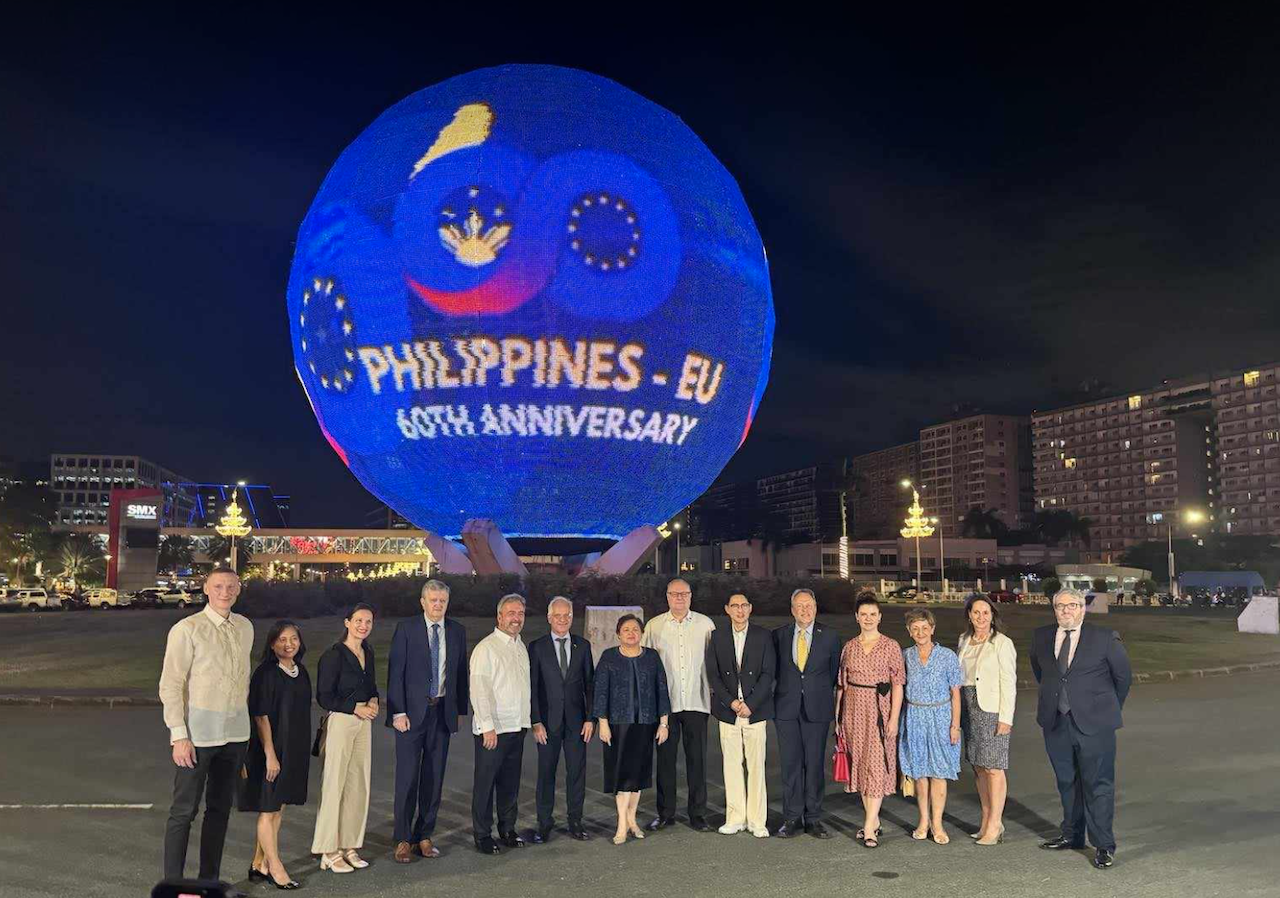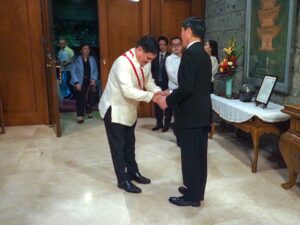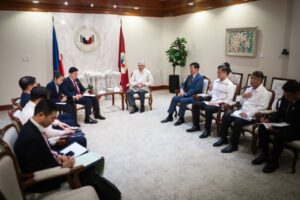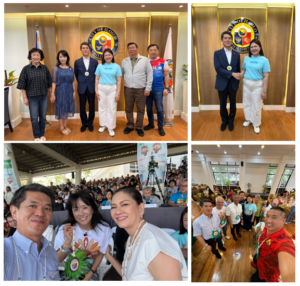
From 12 to 19 January 2024, the iconic globe at SM Mall of Asia in Pasay City is illuminated with the logo of the 60th year of the diplomatic ties between the European Union (EU) and the Philippines.
EU Ambassador to the Philippines Luc Véron and Foreign Affairs Undersecretary Theresa Lazaro, together with SM Supermalls’ President Steven Tan led the lighting ceremony on January 12 to launch the yearlong celebration of the 60 years anniversary of the EU–PH bilateral relations. Ambassadors of the EU Member States’ Embassies were also present to witness the ceremony.
The logo of the 60th anniversary of the bilateral ties symbolizes the enduring commitment to mutual understanding and collaborative problem solving, embodying the spirit of cooperation, solidarity, and harmonious synergy between two diverse regions. It is also a very good representation of how our relationship will continue to progress unabated.
Ambassador Véron said, “2024 is a celebration of the values that the EU and the Philippines share – democracy, human rights, equality, the rule of law, and support for multilateralism and international law.”
Through the year, a number of special events—from a multi-media exhibition to an inter-collegiate quiz (EU Whiz), a choral competition, and many more—will be held to celebrate the 60th anniversary of the bilateral ties.
Besides highlighting the many milestones and achievements of EU-Philippines cooperation over the past six decades, the celebration is also a testament to the enduring friendship and ever-stronger ties between the European Union and the Philippines.
The European Union (EU) and the Philippines have had a long standing relationship since the mid-20th century. The Philippines, having established de facto relations with 15 of the early European Union members in 1948, established formal ties with the European Community (the precursor of the European Union) on May 12, 1964. Philippine Ambassador Vicente I. Singian presented his letters of credence to the European Commission as the first Head of the Philippine Mission to the EU in 1964. The EU Delegation to the Philippines was officially opened on May 15, 1991.
Over the years, the political and diplomatic relations of the EU and the Philippines have transitioned from being primarily focused on developmental goals to adopting a more collaborative and mutually beneficial approach.
The conclusion of the Maastricht Treaty in 1992, which created the European Union, strengthened the EU’s political roles in its dealings with ASEAN and the individual ASEAN Member States.
From 1991 to 1994, the Philippines served as the ASEAN country coordinator of the ASEAN-EU Dialogue relations. During this period, the dialogue partnership expanded its scope to include matters such as regional security, human rights, disarmament, non-proliferation, and drug control. The Philippines is once again the country coordinator for ASEAN-EU Dialogue relations from August 2021 until 2024.
In 2018, the Partnership and Cooperation Agreement (PCA), a significant component of the EU-Philippines Framework Agreement on Partnership and Cooperation, was enacted. This agreement signalled the initiation of collaboration across various areas of mutual interest, encompassing politics, society, economics, counterterrorism, transnational crime prevention, human rights, justice, peace efforts, non-proliferation of weapons of mass destruction, trade, migration, maritime labour, employment, disaster risk management, and health.


